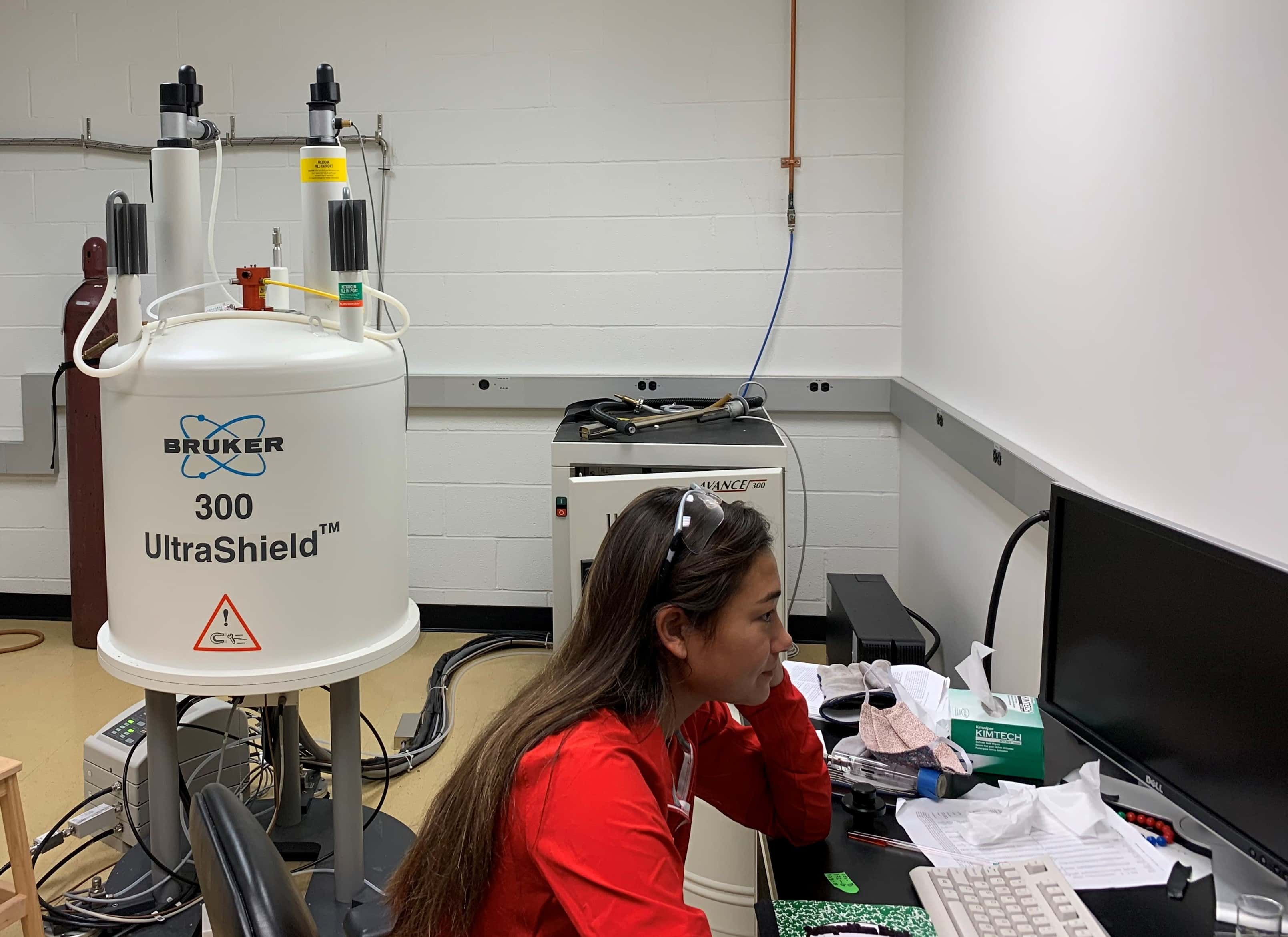
Central College has received a $145,000 grant from the Roy J. Carver Charitable Trust to replace and upgrade its nuclear magnetic resonance spectrometer. The new 400 MHz spectrometer will replace the aging 300 MHz spectrometer purchased and installed by the college in 2003. The 300 MHz unit was part of a larger equipment upgrade supported by the Roy J. Carver Charitable Trust in conjunction with the renovation of Vermeer Science Center.
Central’s chemistry department used the spectrometer the past 17 years to increase students’ exposure to modern instrumentation within the curriculum and through nearly universal participation in undergraduate research within the department. An NMR spectrometer helps determine the molecular structure of organic compounds. Every Central student who takes organic chemistry is trained to operate the NMR and use the data to evaluate the results of their experiments. This includes all chemistry, biochemistry and biology majors, as well as students pursuing a career in the health sciences from other majors. The new, more powerful spectrometer will allow the department to continue this momentum while increasing the quality of laboratory instruction and research.
“The department is looking to expand opportunities within the lab and has recently added protein synthesis lab to the biochemistry curriculum which will be enhanced by analysis with the NMR spectrometer,” Central Professor of Chemistry James Shriver says.
Forward focus is not only on participation but also on the depth and quality of the interactions with instrumentation. Professor Shriver notes, “The department is planning to increase its publication rate and grantsmanship. For example, Associate Professor of Chemistry Jay Wackerly recently had work published in a prestigious academic journal involving many undergraduate students and collaborations with the University of Iowa.”
The department expects to not only publish quality research, but also increase submissions of grants to federal funding agencies such as the National Institutes of Health and National Science Foundation. This upgraded NMR positions the department to be competitive in these endeavors.

